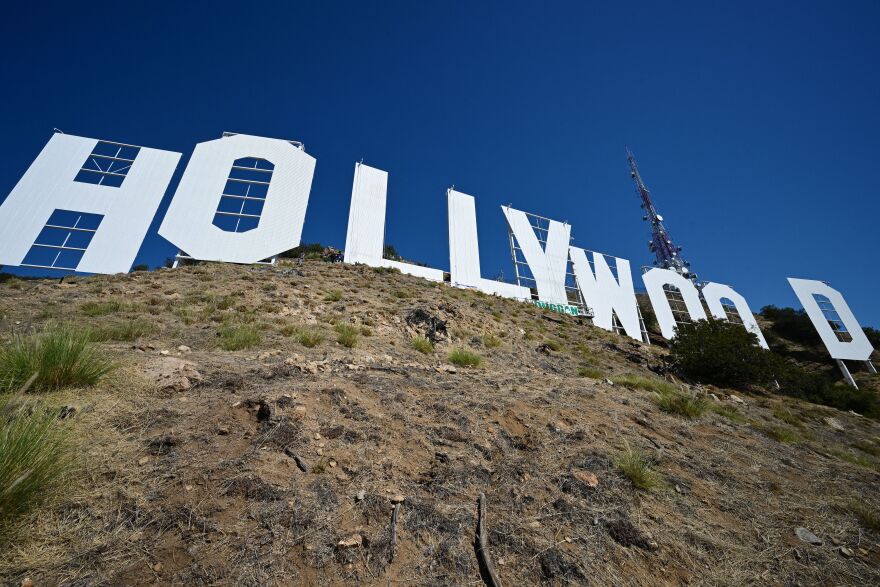This story is free to read because readers choose to support LAist. If you find value in independent local reporting, make a donation to power our newsroom today.
How Hollywood wants to tell better stories about the climate crisis

When I think of how Hollywood largely depicts the climate crisis, I think of apocalypse movies like Mad Max or The Day After Tomorrow.
Those types of narratives are necessary to show the gravity of the situation we’re in, but there’s way more to the climate story than the do-or-die situations we mostly see in the media — and Hollywood needs to reflect that, said Hollywood Climate Summit cofounder Heather Fipps.
“We are seeing a world depicted on screen that is either divorced from reality and not showing climate change happening, or it is showing us a future that is not the future that we want,” Fipps said.
The 5th annual Hollywood Climate Summit, which began Tuesday afternoon, aims to inspire diversity and nuance in climate storytelling. The four-day conference brings together filmmakers, actors, activists, journalists, climate experts and more to discuss how Hollywood can reflect the impact of the climate crisis in our everyday lives, as well as help us imagine a better future.
“We're getting people really excited about the unique opportunity that Hollywood has to be a force for envisioning a new future and giving us different stories that we can tell ourselves about the moment that we're in,” Fipps said.
How to attend
Tickets are still available to attend this year’s summit and the events will also be streamed online for free. The panels will be available on YouTube after the summit concludes. You can see the full schedule here.
The summit will feature speakers such as Bill Nye, Jane Fonda and U.S. Secretary of Energy Jennifer Granholm, as well as local activists like Nalleli Cobo, who grew up near an oil drilling site in south L.A and advocated successfully with other community members to get it shut down. Her activism with her community was instrumental in getting the city to begin to phase out neighborhood oil drilling altogether.
Fipps said it’s stories like that that are missing from the mainstream Hollywood narrative.
The films, TV shows, and other media we consume has a huge influence on our culture, attitudes, and actions. But when it comes to how the climate crisis is depicted by Hollywood, too often stories are only of doom, or they ignore the realities of human-caused climate change.

“We see a lot of futures and stories that are depicted with more technology, more isolation, more depleted resources. And I think we want to see an abundance mentality of what is possible if we were to embrace a regenerative, cyclical economy,” Fipps said. “And so how are we seeing communities work together rather than individuals? How are we seeing stories of people coming together and advancing shared values as opposed to fighting?”
Fipps said there’s still lots of drama, humanity, comedy and tragedy in stories like that.
“For me personally, I grew up in Big Bear Lake, and I get really emotional thinking about the stakes of my favorite childhood forest, the forest that I was married in, burned down in a historic wildfire,” Fipps said. “That's a stake to me, and that is a part of my real story that could be the backdrop of something.”
She added that Quinta Brunson’s TV show Abbott Elementary is a great example of weaving the realities of the climate crisis into everyday life in a comedic way.

“The second episode of the last season of Abbott, it starts with, ‘look how hot it is — we don't even have the infrastructure in this school to support how hot it is outside,’” said Brunson at last year’s Hollywood Climate Summit. “It's [Principal] Ava who says, ‘why is it January and hotter than the devil's booty hole?’ So my mom has a nice chuckle, but then goes, ‘why is it February or January and hotter than the devil's booty hole? Let me look that up.’ I know it seems so stupid, but I think that's really necessary for people who otherwise would not really be interested in looking into the climate.”
The summit started Tuesday afternoon and runs through Friday at the Academy of Motion Picture Arts and Sciences in Beverly Hills.








